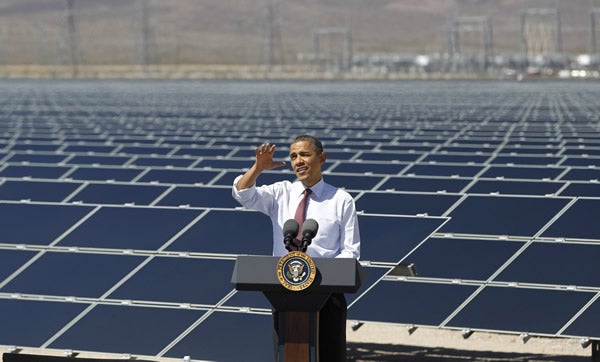If it ain’t broke, the government will break it for you. That seems to be the lesson to draw from other nations that have implemented climate change energy plans similar to the ones Obama recently proposed in his Climate Action Plan.
- Australia. Momentum for Australia’s carbon tax is waning as the costs and difficulties of administering the tax are sinking in. Many businesses already stretched by a tough economic climate were put over the edge with higher energy prices, in part from renewable mandates and the carbon tax. Last year, Australia saw 10,632 companies collapse, a record number for a single year. Nearly one-fifth of them were in energy-intensive manufacturing and construction. Tourism Accommodation Australia also expects the industry to pay $155 million annually in extra costs passed on from increased energy prices specifically due to the carbon tax. As a result, with September elections approaching, there is uncertainty that the tax will survive much beyond its first anniversary.
- Germany. After the nuclear accident at Fukushima in Japan, the German government committed to replacing nuclear power with renewables, setting a goal of 40 percent of the nation’s electricity coming from renewables by 2020. Electricity prices have increased 10 percent since the current government took power, and the surcharge on utility bills to subsidize renewables is scheduled to again increase. Also increasing: the number of low-income and unemployed families being disconnected and firewood robbery from forests. In Germany, electricity is on the fast track to becoming a luxury. Meanwhile, relatively cheap energy prices in the U.S. have attracted at least one of Germany’s top chemical companies, BASF.
- Spain. While the German government has put the costs of mandated renewable energy on energy users, Spain has put the burden on utilities. The combination of heavily subsidized renewable generation and requirements that utilities buy renewable electricity left utilities with a $7.3 billion deficit in 2012 to add to a running deficit of $34.04 billion over the past decade. On top of that, green jobs have yet to make a dent in Spain’s unemployment and in fact are calculated to have killed 2.2 jobs in Spain for every single “green” job created by the subsidies. Spain trails only Greece for the worst unemployment rate in the European Union. It’s no surprise, then, that the Spanish government has pulled back on exorbitant subsidies to wind and solar, popping the solar bubble and leaving those who invested in solar (including those who banked on near risk-free investments for retirement) high and dry.
- Africa. Unlike other countries that have created their own problems, many African countries have fallen victim to carbon mitigation schemes. Carbon-emitting fuels have lifted billions of people out of poverty—but not in Africa, where some governments and environmental groups have worked with developed countries looking to “offset” their own carbon emissions to mark off land into “carbon farming” and forestry projects. In some cases, this has locked farmers into strict land use contracts that preclude them from more productive farming. Other programs have even kicked people out of their homes to make room for CO2-loving forests. Essentially, wealthy, developed nations have paid Africans to remain poor and help developed nations feel better about emitting carbon.
With the expected and unanticipated costs of climate change programs becoming apparent around the world, America should reject such economically foolhardy plans for otherwise unnoticeable environmental benefits from cutting carbon emissions. Someone always has to pay the bill, whether that’s businesses, consumers, taxpayers, or the politically powerless. That’s one reason why it makes sense to leave decisions about how our energy is made and how much it costs to the market—that is, businesses and their customers.
Another good reason: No matter how well intentioned, when it comes to centrally planning and mandating our energy choices, government does a better job at breaking things than fixing them.


























